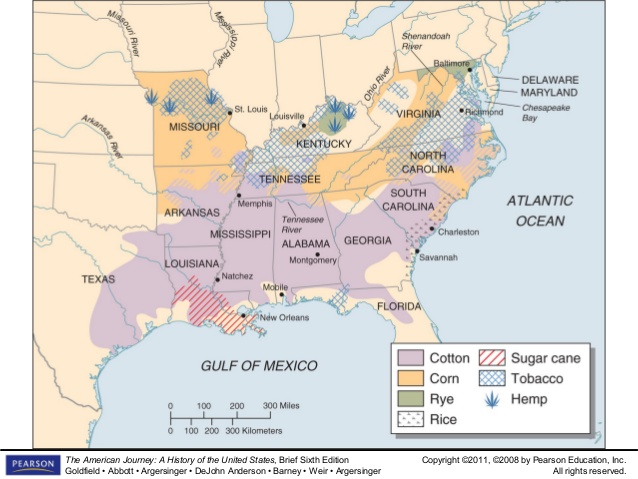
I’ve always thought this was a great metaphor.
The Purtitan ancestors of Yankees saw New England as a frigid, howling wilderness where they were erecting a godly “City on a Hill” in Massachusetts:
“The environment, to be sure, has long been seen as one of the factors that made the South different from other parts of the United States. Agricultural historians especially had an early appreciation of the role of climate, soil, and other factors that created a long growing season and particular types of agricultural organization. Images of lush tropical conditions in the South often framed discussions attempting to lure colonial settlers to a new Garden of Eden or, later, into new phases of the frontier.”
Upon further thought, I also think Confederate History Month 2019 is far too narrow in scope and would rather just ramble across every aspect of the South in April. In fact, I find the Confederate period less interesting than other chapters of Southern history.
“In The Colonial Search for a Southern Eden (1953), historian Louis B. Wright noted, “The notion that the earthly paradise, similar to if not the veritable sight of the Scriptural Eden, might be found in some Southern region of the New World and was widely held in the seventeenth and early eighteenth centuries.” Some explorers claimed that God had placed Eden on the 35th parallel of north latitude, along a line from New Bern, N.C. to Memphis, Tenn. In more recent times, the idea of a southern Eden has faded, but the post-World War II New South helped restore a little piece of the myth and raised the esteem of the South as a land of opportunity.”
This is how our ancestors saw their world.
The South was like this vast sub-tropical Eden waiting for enterprising planters and their servants to move in and harvest the agricultural abundance. It was a place to relocate to from Britain in order to better your own life socially and economically. They wanted to remain British … at least at first, until they started constructing their own identity out of their unique environment.
I’ve explained before how climate and geography played a huge role in shaping the natural boundaries of the South and the character of its people:



Anyway, the pleasant sights, smells and warmth of spring weather has arrived in the South, which is a season everyone enjoys here regardless of politics. I like to think of this place as “The Great Plantation” because it really is even down to its natural climatic borders.
Note: The excerpts above come from from p. xvii and p.1 of The New Encyclopedia of Southern Culture: Environment.





What would you consider the most interesting period of Southern history, HW? The Revolutionary War, perhaps? Most of it was fought in the South after the British failed to sieze the Hudson River in 1777-78. But Yankee historians generally downplay Southern participation in that conflict.
My favorites are the colonial era and the antebellum era. The WBTS is depressing. Hundreds of thousands of our people died. We know how it ends.
I wrestle with the past and present of the South. I’m nothing but a Southerner, but I’m not particularly drawn to the Civil War and Confederate history and myths. I honestly think that young and middle aged Southerners are being turned away by the concentration on the Civil War. I don’t even know if the South even has its own leaders at this point, but if it does, they have failed miserably at offering up a vision of a modern or future South for Southerners. Soon it will be too late.
I have direct ancestors who fought at Franklin, Gettysburg, and many other major battles, as well as in the Revolution, but the Lost Cause keeps us in the loser’s role, and as the descendant of mostly small farmers back into the colonial era, I don’t have great love for the planters and their slaves, anyway.
I attended the rally near Vidalia a few years back, and watched next to a group of white locals who talked about having no desire to go back to farming. My parents and grandparents left the rural South for a reason. Who wants to be poor in a heavily regimented society? As much as I feel an affinity to the place and customs, the past wasn’t that great for most Southerners. Had there been no massive wave of immigrants and transplants into the South, the present would likely be a golden age for most whites in the South– our 1950s.